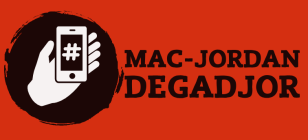Interview Series with Kamogelo Sesing, co-founder of Bookbeak on empowering African storytellers by sharing their stories.
Africa is awash with stories, and storytellers. From historic events and happenings, and folklore of the past to comedy, music, cartoons, fantasy and imaginative write-ups of today, there are millions of written, audio and video content that has emanated and is emanating from the shores of Africa.
But proper distribution and effective curation remain a significant drawback. Several content producers eventually seek refuge in foreign digital platforms to showcase their work to a global audience.
This was what motivated Kamogelo Sesing and the other founders to launch BookBeak, a digital platform that offers African storytellers a global space to showcase their content.
It aggregates African short stories from published, unpublished and self-published writers and serve them to a global audience.
In this interview with Kamo, he shares some insight on the inspiration for BookBeak, the reason for the name, its current plans and its vision for the future of content in Africa.
Why the name BookBeak?
A beak is a bird’s mouthpiece that allows it to share its melodies with the world and our platform is designed to afford African storytellers the opportunity to share their stories and talents with the world.
What is the business of BookBeak and what are the unique offerings?
What inspired this decision to establish such a platform?
What actually sparked the idea was a frustration articulated by African parents who wanted to expose their kids to more representative stories that their kids could relate to but these parents:
- Did not have a centralized place where they could find this content and
- That housed a large enough inventory they could keep coming back to daily. We also realized that there were a lot of unpublished writers and storytellers who had this unique content.
So we decided to connect the two.
When did you first get this idea?
BookBeak is an idea we had 3 years ago as a different iteration of the current one. Only 8 months ago did we pivot conceptually from what it was to become a platform for African short stories.
Given that it is the first of its kind, what challenges did you face while building the platform?
The challenge wasn’t in so much building the app itself but the aggregating of African content from self-published authors, aspiring writers, and storytellers in all their shapes, forms, and sizes.
Do those challenges persist today? If not, what unique challenges do you grapple with now?
To a certain extent, aggregating content will always be an issue because even when we have a large content inventory we’ll still be looking for more and better content so we can have a superior value proposition to whatever competitors might creep up.
Our issue now? We have modest marketing budgets which directly affects how many people were able to reach and therefore how many people end up registering and subscribing. But there’s some light at the end of the tunnel.
How has the response been since its launch? How many current active users do you have and how many story creators and content developers have been on-boarded?
The response has been nothing but positive and we believe that this can be attributed to us solving a frustration for people and having a value proposition that resonates with our audience because at its core BookBeak is about addressing a representation issue in the stories people read and read to their kids.
How commercially viable has this venture been?
The commercial success isn’t one of our metrics at this stage of the business. What we’re using to judge success right now is the acquisition of new subscribers, repeat visitation and how frequently those people are using the app. So in relation to those metrics, we’re doing exceptionally better than anticipated.
How much potential do you see in this space, particularly for the African continent where content curation isn’t full-fledged and home-grown connectors aren’t dominant yet?
For us, the potential is massive. Africa seems to be the new honeypot the world is trying to get a taste of. All you have to do is look at how many things are benefiting from the influence of African inspiration – fashion, music, dance.
Even African inspired superhero movies like Black Panther are breaking global and Western box offices. I feel that Africa has a lot to offer the world because it remains largely unexplored culturally. And BookBeak is just a way for the rest of the world to culturally explore Africa through stories.
Do you plan on expanding the platform to include other forms of content, making it the African go-to for African content?
The word ‘book’ in the name BookBeak makes that difficult (laughs). Our core will always be storytelling in every shape and form possible but if the opportunity to expand into other content forms makes sense for us, there’s no reason for us not to expand into it.
What are the overall vision for BookBeak and the long-term goal for the platform?
We want to be the largest holder of African stories on the planet and give even more African storytellers greater access to people locally and overseas looking for these uniquely African stories.










